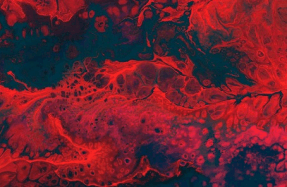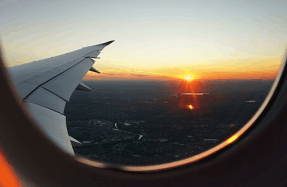Jasmine Fingers
 Image source: The Metropolitan Museum of Art.
Image source: The Metropolitan Museum of Art. In Damascus I have amnesia.
It’s 2:00 a.m., and I am standing on the cold floor of the balcony looking over the flickering lights of the Umayyad roundabout, where cars swerve smooth and strong into the circle, joined for a moment in a dance around the fountains before they drive away in different directions. I don’t remember that the same scene was washed over by the sun only hours ago, white-hot, everything the same color until the western horizon took the light.
In Damascus I have a photographic memory.
From right to left I see: the Sheraton Hotel like a decapitated sphinx, its music echoing in the late night like a ballad serenading the city’s insomniac lovers; the bullet-studded walls of the Syrian National News Agency; the deep red and blue lights of the Umayyad sword; and the National Library, my mother’s beloved second home.
When they ask me, I say, no, I do not know Syria intimately. When my mama and tayta weave their conversations through Damascus’s neighborhoods, its streets, and its families, their personal geography of the city remains out of reach. Instead, to me, Damascus is one endless road I take from Souq al-Hammidyah to my grandmother’s house. Where I am standing, at 2:00 a.m., overlooking the Umayyad roundabout.
The stream of constant traffic that comes from all directions and leaves in all directions. As though I were standing here at the center of Damascus, my grandmother’s balcony marked off like a sign, a place to point to and say: it begins here.
For my mother, who grew up with the taste of Syrian cardamom on her tongue, those long flights to Damascus every summer of my childhood were homebound, a return. My connection to Syria was a tenuous one; it was a place of perpetual vacation. My mother would disappear without effort into Damascene society. She felt at home—she was home—while my clumsy childhood dialect betrayed me.
Part of growing up somewhere different from where your parents did is that you feel disconnected from things that grow there. Fruits and herbs whose names I can’t translate into Arabic, because I never needed them in that language. I hardly taste my parents’ Arabic on my tongue.
And when you write about a place you didn’t really
You’re reading a preview, subscribe to read more.
Start your free 30 days





